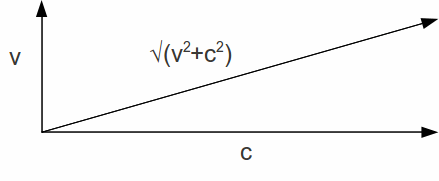The Newtonian view of the Universe assumes absolute time, pervading all of space, moving at the same rate for all observers. Space it is supposed, is itself stationary, and provides an absolute frame of reference, relative to which all particles and events can be given coordinates. In this space, it was supposed, we could find our velocity through space by conducting experiments to measure the speed of light. These key experiments would give a different result, depending on whether the experimenter is at absolute rest or moving. Each observer could determine his own state of absolute motion simply by experimenting, without any reference to the exterior world. A number of 19th century physicists thought that measuring the speed of light would be such a key experiment: If you measured exactly the same speed for light going in different directions, then you would be at absolute rest. If light appeared, in your laboratory experiments, to move slightly faster in one direction than in others, than that would indicate your absolute motion through the "ether", the medium in which light was thought to propagate.



In fact, no such experiment to determine absolute velocity relative to space is possible. The speed of light is constant and we always obtain the same number when we try to measure it. The speed of light is determined by fundamental constants:![]() and so is also constant.
and so is also constant.
